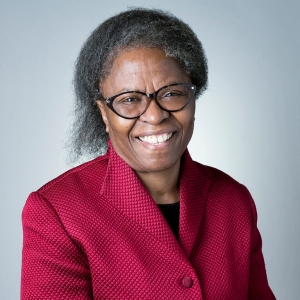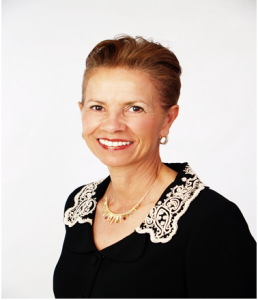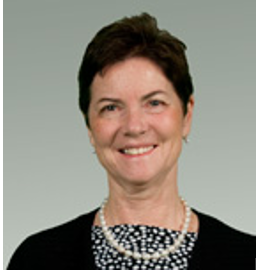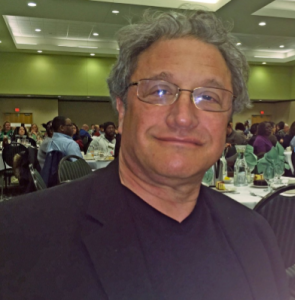 This conference aims to pursue a new pathway for advocating innovative approaches in research and practices, maximizing professional exchanges and collaboration among LCTL educators, and leveraging resources and strengths in the less commonly taught languages community. We cordially invite researchers, educators, practitioners, program developers, and administrators in the LCTL community organizations to attend the conference.
This conference aims to pursue a new pathway for advocating innovative approaches in research and practices, maximizing professional exchanges and collaboration among LCTL educators, and leveraging resources and strengths in the less commonly taught languages community. We cordially invite researchers, educators, practitioners, program developers, and administrators in the LCTL community organizations to attend the conference.
Time & Location
April 21, 2017 – April 23, 2017
Holiday Inn – Schaumburg Area, Rolling Meadow, ILLINOIS
Click to download a copy of the program
Speakers
Maria M. Carreira
A Roundtable on the Report of the National Commission on Language Education and Its Consequences for the Language Profession
ABSTRACT: The new Report of the National Commission on Language Learning of the American Academy of Arts and Sciences provides a welcome opportunity for the language profession to move aggressively in elaborating and meeting Commission’s very important recommendations. A strong proactive approach is critical, given the fact that such national reports do not always lead to significant changes without an effective implementation plan. In this case, implementation unquestionably resides in the hands of an the Language Enterprise, which has worked for decades to build the support necessary to provide language education to all in this nation who seek it.
The Roundtable participants will discuss the report and its recommendations, focusing on their intent and rationale, as well as on the course and likelihood of implementation. The Language Enterprise, and, more specifically, the organizations representing the LCTLs, will be challenged to take up the planning and implementation of the Commission recommendations and engaging the nation in next steps.
Participants:
Antonia Schleicher (Chair): Professor of ALTA/NCOLCTL Executive Director
Dr. Antonia Folarin Schleicher is the 2015 recipient of the ACTFL Wilga Rivers’ Award for Leadership in Foreign Language Education (Postsecondary). She is the founding Executive Director of the Indiana University Center for Language Excellence. She is also the Founding Director of the United States National African Language Resource Center. In 2010, she received the UW-Madison Chancellor’s Distinguished Teaching Award and the National Council Of Less Commonly Taught Languages Wal-ton Award for a Lifetime Distinguished Career in support of less commonly taught languages. Schlei-cher has authored four textbooks and three multimedia CDROMs for the learning of Yoruba and has co-authored numerous textbooks for other African languages such as Swahili, Shona and Pulaar. She co-authored African Language Pedagogy: An Emerging Field. She has edited more than 30 other books and six journals and has authored over two dozen articles in peer reviewed journals. Professor Schleicher has degrees from the University of Ibadan, Nigeria, and the University of Kansas in General Linguistics and much of her current work deals with pedagogical issues in Foreign and Second Lanuage Acquisition. She currently teaches courses on African Linguistics and different courses on Yoruba Language and Culture at IU-Bloomington.
She serves as the Executive Director of both the National Council of Less-Commonly Taught Languages (NCOLCTL) and the African Language Teachers Association (ALTA). She is a Board Member of JNCL (Joint National Committee for Languages). Professor Schleicher was awarded the United States President’s Gold Level Volunteer Service Award for over 500-hours-a-year of devoted and unpaid service to the cause of promoting less-commonly taught languages and cultures in the U.S. She served on the ACTFL Board of Directors for three years. She is on the Board of Trustees of Center for Applied Linguistics and is also the current President of the National Federation of Modern Language Teachers Association (NFMLTA).
Richard D. Brecht: Professor Emeritus, University of Maryland.
 Dr. Richard D. Brecht: Having received his M.A. and Ph.D. from Harvard University, Dr. Brecht is now Professor Emeritus at the University of Maryland. Brecht is also co-director of the American Councils Research Center, a think tank devoted to providing evidence for language policy and management decisions in education and the work place. As an academic entrepreneur, he has founded, built and led over a dozen academic organizations, including the Center for Advanced Study of Language (a Department of Defense University Affiliated Research Center), American Councils for International Education, the National Council of Less Commonly Taught Languages, and the National Foreign Language Center. Currently, Dr. Brecht is Co-Founder and Chief Research Officer of Global Professional Search Inc (GPS), a business connecting employers to job applicants with foreign language proficiency, international experience, and multicultural understanding. Dr. Brecht has testified in Congress before the U.S. House of Representatives Committee on Education and Labor, the U.S. House Permanent Select Committee on Intelligence, the U.S. House Armed Services Committee, and the U.S. Senate Committee on Homeland Security and Governmental Affairs. He has made hundreds of academic presentations and authored and edited dozens of scholarly books, textbooks, manuals, articles and reviews on language policy, second language acquisition, and Slavic and Russian linguistics, including a briefing paper “America’s Languages: Challenges and Promise” for the language education commission of the American Academy of Arts & Sciences. Finally, Dr. Brecht has received numerous awards from national and international organizations in the language field.
Dr. Richard D. Brecht: Having received his M.A. and Ph.D. from Harvard University, Dr. Brecht is now Professor Emeritus at the University of Maryland. Brecht is also co-director of the American Councils Research Center, a think tank devoted to providing evidence for language policy and management decisions in education and the work place. As an academic entrepreneur, he has founded, built and led over a dozen academic organizations, including the Center for Advanced Study of Language (a Department of Defense University Affiliated Research Center), American Councils for International Education, the National Council of Less Commonly Taught Languages, and the National Foreign Language Center. Currently, Dr. Brecht is Co-Founder and Chief Research Officer of Global Professional Search Inc (GPS), a business connecting employers to job applicants with foreign language proficiency, international experience, and multicultural understanding. Dr. Brecht has testified in Congress before the U.S. House of Representatives Committee on Education and Labor, the U.S. House Permanent Select Committee on Intelligence, the U.S. House Armed Services Committee, and the U.S. Senate Committee on Homeland Security and Governmental Affairs. He has made hundreds of academic presentations and authored and edited dozens of scholarly books, textbooks, manuals, articles and reviews on language policy, second language acquisition, and Slavic and Russian linguistics, including a briefing paper “America’s Languages: Challenges and Promise” for the language education commission of the American Academy of Arts & Sciences. Finally, Dr. Brecht has received numerous awards from national and international organizations in the language field.
Dan Davidson: President of American Councils for International Education and Professor of Russian, Bryn Mawr College,
 Dr. Dan E. Davidson, President of American Councils for International Education and Professor of Russian, Bryn Mawr College, holds the Ph.D. degree in Slavic Languages from Harvard University. He is author or editor of 44 books or collections as well as over 60 scholarly articles in the fields of Russian language, culture and international education. In 2015, Dr. Davidson was named to the Commission on Languages of the American Academy of Arts and Sciences on Languages. He is a foreign member of the Russian Academy of Education (RAO), Vice-President of the International Association of Teachers of Russian (MAPRIAL), and served as elected chair of the College Board World Languages Academic Advisory Committee, the Joint National Committee for Languages, and the Alliance for International Education Exchange. His latest study, “Assessing Language Proficiency and Intercultural Development in the Overseas Immersion Context” appeared in Exploring the US Language Flagship Program. Professional Competence in a Second Language by Graduation. Eds. Murphy, D. & Evans-Romaine, K. Multilingual Matters, Bristol, UK October 2016.
Dr. Dan E. Davidson, President of American Councils for International Education and Professor of Russian, Bryn Mawr College, holds the Ph.D. degree in Slavic Languages from Harvard University. He is author or editor of 44 books or collections as well as over 60 scholarly articles in the fields of Russian language, culture and international education. In 2015, Dr. Davidson was named to the Commission on Languages of the American Academy of Arts and Sciences on Languages. He is a foreign member of the Russian Academy of Education (RAO), Vice-President of the International Association of Teachers of Russian (MAPRIAL), and served as elected chair of the College Board World Languages Academic Advisory Committee, the Joint National Committee for Languages, and the Alliance for International Education Exchange. His latest study, “Assessing Language Proficiency and Intercultural Development in the Overseas Immersion Context” appeared in Exploring the US Language Flagship Program. Professional Competence in a Second Language by Graduation. Eds. Murphy, D. & Evans-Romaine, K. Multilingual Matters, Bristol, UK October 2016.
Bills Rivers: Executive Director, Joint National Committee for Languages – National Council for Language and International Studies
Dr. Bills Rivers has more than 25 years’ experience in culture and language for economic development and national security, with expertise in research, assessment, program evaluation, and policy development and advocacy. He serves as the Executive Director of the Joint National Committee for Languages and the National Council for Languages and International Studies (JNCL-NCLIS), representing more than 125 language organizations in the US and more than 300,000 language professionals to the Federal Government and business community. In addition, Dr. Rivers chairs the US National Standards Committee for language services and products, ASTM Technical Committee F43, “Language Services and Products,” the U.S. Technical Advisory Group to the International Standards Organisation (ISO) Technical Committee 232, Training in the Informal Sector, and serves as the Secretary to the US Technical Advisory Group to ISO Technical Committee 037 on Terminology and other language and content resources.
Before joining JNCL-NCLIS, he served as Chief Scientist at Integrated Training Solutions, Inc., a small business in Arlington, Virginia, where he focused on strategic planning, management consulting, and advanced technologies for language and culture programs in the public sector. While at ITS, he served in a contractor role as the founding Chief Linguist of the National Language Service Corps. Prior to working at ITS, he was a founding member of the Center for Advanced Study of Language (CASL) at the University of Maryland, serving as the first Director of LCTLs at CASL. He was a staff member of the National Foreign Language Center from 1994 to 2003, and a staff member in the Publications department of ACTR/ACCELS from 1993-1995.
During his career, Dr. Rivers has also taught Russian from first through fourth year at the University of Maryland, worked as a freelance interpreter and translator for aerospace and astrodynamics projects, and lived and conducted field work in Kazakhstan, where he regularly returns to teach. He received his PhD in Russian from Bryn Mawr College and his MA, BA, and BSAE from the University of Maryland.
Brian Edwards: Crown Professor in Middle East Studies and Professor of English and Comparative Literary Studies at Northwestern University
 Dr. Brian T. Edwards is the Crown Professor in Middle East Studies as well as a Professor of English, Comparative Literary Studies, and American Studies at Northwestern University. He is also the founding Director of Northwestern’s Program in Middle East and North African Studies, which offers an interdisciplinary undergraduate major, a PhD certificate, and Arabic, Hebrew, Persian, and Turkish language. His interests lie in American culture and its global context, especially in the Middle East. His publications include two books, Morocco Bound: Disorienting America’s Maghreb from Casablanca to the Marrakech Express (2005) and After the American Century: The Ends of U.S. Culture in the Middle East (2016), two edited collections, Globalizing American Studies (2010) and On the Ground: New Directions in Middle East and North African Studies (2013), and essays, articles, and OpEds in a range of both scholarly and mainstream publications, including Salon, Public Culture, Foreign Policy, Chicago Tribune, and The Chronicle of Higher Education. He was a Fulbright Fellow to Morocco and Fulbright Senior Scholar to both Egypt and Italy. He was named a 2005 Carnegie Scholar and was a 2008-09 recipient of a New Directions Fellowship from the Andrew W. Mellon Foundation. In 2013, he was named an Emerging Leader by the Chicago Council on Global Affairs. In that capacity, he was lead author on a white paper published in 2015 by the Council entitled “Teaching Arabic in Our Schools: Globalizing Education for Chicago’s Next Generation.” Edwards is chair of the Chicago Arabic Teachers’ Council, funded by a grant from the Qatar Foundation, which serves the 250+ Arabic teachers in Chicagoland by building relationships between and providing resources to Arabic language instructors, school administrators and education professionals.
Dr. Brian T. Edwards is the Crown Professor in Middle East Studies as well as a Professor of English, Comparative Literary Studies, and American Studies at Northwestern University. He is also the founding Director of Northwestern’s Program in Middle East and North African Studies, which offers an interdisciplinary undergraduate major, a PhD certificate, and Arabic, Hebrew, Persian, and Turkish language. His interests lie in American culture and its global context, especially in the Middle East. His publications include two books, Morocco Bound: Disorienting America’s Maghreb from Casablanca to the Marrakech Express (2005) and After the American Century: The Ends of U.S. Culture in the Middle East (2016), two edited collections, Globalizing American Studies (2010) and On the Ground: New Directions in Middle East and North African Studies (2013), and essays, articles, and OpEds in a range of both scholarly and mainstream publications, including Salon, Public Culture, Foreign Policy, Chicago Tribune, and The Chronicle of Higher Education. He was a Fulbright Fellow to Morocco and Fulbright Senior Scholar to both Egypt and Italy. He was named a 2005 Carnegie Scholar and was a 2008-09 recipient of a New Directions Fellowship from the Andrew W. Mellon Foundation. In 2013, he was named an Emerging Leader by the Chicago Council on Global Affairs. In that capacity, he was lead author on a white paper published in 2015 by the Council entitled “Teaching Arabic in Our Schools: Globalizing Education for Chicago’s Next Generation.” Edwards is chair of the Chicago Arabic Teachers’ Council, funded by a grant from the Qatar Foundation, which serves the 250+ Arabic teachers in Chicagoland by building relationships between and providing resources to Arabic language instructors, school administrators and education professionals.
A STARTALK at 10: Impact, Innovation and Resources
ABSTRACT: The Have you heard about STARTALK? Are you familiar with the publicly-available resources on its website? Are you interested in hosting a STARTALK program? Come to this panel presentation to learn about this innovative program, which is changing the way world languages are taught and generating interest among students for the LCTLs. Panelists will share ways that this program is impacting students, teachers, institutions, and communities. You will also explore the vast resources that are hosted on the STARTALK website: curricula, learning plans, videos of effective classroom instruction, self-guided professional development modules, and much more.
Panelists:
Marjorie Hall Haley, Professor of Education at George Mason University
Dr. Marjorie Hall Haley is tenured Professor of Education at George Mason University in Fairfax, VA. She is a former Spanish, French, German, and ESL teacher of 14 years. Dr. Haley holds a PhD in Foreign Language Education and English as a Second Language from the University of Maryland, College Park. She has also earned a Master’s degree in education and advanced studies certificates from Towson University and Johns Hopkins University, respectively.
In her 29th year at George Mason University, she teaches Foreign Language methods and ESL methods courses as well as doctoral courses in Brain-compatible Teaching and Learning, Bilingualism and Second Language Acquisition Research. She is actively involved in ongoing action research projects with teachers at local, national, and international levels. She has conducted four international teacher action research studies focused on the impact of implementing the Multiple Intelligences theory in foreign/second language classes. These studies included over 3,000 students in 14 states and 6 countries. In 2012, the Foreign Language Association of Virginia (FLAVA) awarded her its Marshall Brannon Excellence in Teaching Award, Post-Secondary. In 2002 George Mason University awarded her its Outstanding Faculty Award in Teaching. She is a former member of the Board of Directors of the American Council on the Teaching of Foreign Languages (ACTFL). In 2016 the American Education Research Association (AERA) awarded her the Carlos J. Vallejo Memorial Award for Lifetime Scholarship.
Dr. Haley’s research and publication record is robust. Her most recent books are, Content-Based Second Language Teaching and Learning: An Interactive Approach (2nd Ed.) (2014) and Brain-compatible Differentiated Instruction for English Language Learners (2010). In addition, she is a featured scholar in the WGBH and Annenberg/CPB video, “Valuing Diverse Learners” available at www.learner.org
Betsy Hart, Director of Programs, National Foreign Language Center, University of Maryland
Ms. Betsy Hart is director of programs at the National Foreign Language Center (NFLC) at the University of Maryland. Since 1993, she has held several positions at the NFLC beginning as executive assistant to the director and then serving as associate director for many years before assuming her current role.
Ms. Hart directs the implementation of the STARTALK project tasks to make certain that they are conceptually on track, on time, and adhere to client requirements. She is actively involved in STARTALK outreach activities and disseminates information on STARTALK through national conference presentations and workshops. She launched her career in higher education in Heidelberg, Germany, where she coordinated the scheduling of classes and professors throughout Europe for University of Maryland’s University College Overseas Programs. Ms. Hart holds an undergraduate degree in Education from Marywood University, a master’s degree in Business Administration from Boston University, and a post‐graduate certificate program in Leadership and Management at the University of Maryland.
Joseph Pilkus, Foreign Language Operations Officer, Office of the Director of National Intelligence
Diane Varieur, Government Program Manager, STARTALK, National Security Agency
Humanizing teaching: A humanistic approach to teaching languages and Resources
ABSTRACT: The humanistic approach first became known to language teachers in the 70s thanks largely to the work of Earl Stevick, the best known proponent of humanism in language learning. A number of innovative methods broke away from the traditional audio-lingual and cognitive-code methods to focus instead more on the learner, learner autonomy, and affective domain. Motivated by the new demands of globalization and 21st century learning, and grounded in brain research and positive psychology, the humanistic approach has taken on new meanings during the past decade, calling for language teachers to humanize teaching and learning by educating the “whole child”, creating more right-brain oriented instructional design and bringing more meaning, stories, empathy, and play into the language classrooms.
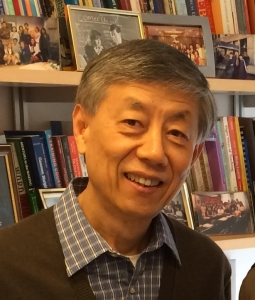 Dr. Lixing Frank Tang is research professor of foreign language education at the Steinhardt School of Culture, Education, and Human Development New York University. Before joining NYU in 1995, he taught ESL and Chinese in NYC public schools and served as the director of NYS Asian Languages Bilingual Technical Assistance Center. At NYU Steinhardt, he served as the director of Multilingual Multicultural Studies (TESOL/Foreign Language Education/Bilingual Education) from 1998 to 2013 and he was the founding director of Teaching Chinese as a Foreign Language Program at NYU. He was named NYU Steinhardt’s Professor of Teaching Excellence in 2000. His research interest includes brain –based instruction, humanistic approach to teaching and learning, and mentoring in teacher development. He has published many articles and books with his first professional book TEFL in China: Methods and Techniques published in 1984. His more recent publications include a co-authored book Educating Students with Formal and Limited Education: A Guide for Educators (2010) and Humanistic approach in teaching language and culture in a referred journal (2016).
Dr. Lixing Frank Tang is research professor of foreign language education at the Steinhardt School of Culture, Education, and Human Development New York University. Before joining NYU in 1995, he taught ESL and Chinese in NYC public schools and served as the director of NYS Asian Languages Bilingual Technical Assistance Center. At NYU Steinhardt, he served as the director of Multilingual Multicultural Studies (TESOL/Foreign Language Education/Bilingual Education) from 1998 to 2013 and he was the founding director of Teaching Chinese as a Foreign Language Program at NYU. He was named NYU Steinhardt’s Professor of Teaching Excellence in 2000. His research interest includes brain –based instruction, humanistic approach to teaching and learning, and mentoring in teacher development. He has published many articles and books with his first professional book TEFL in China: Methods and Techniques published in 1984. His more recent publications include a co-authored book Educating Students with Formal and Limited Education: A Guide for Educators (2010) and Humanistic approach in teaching language and culture in a referred journal (2016).
The Importance of Less Commonly Taught Languages in Global Business
ABSTRACT: As the emerging markets have grown in economic importance, so too have the languages spoken within them for multinational companies. The major markets of the OECD (advanced economies) nations have become saturated while the real growth potential exists in the fast-growing economies of emerging and developing economies. In 2016, the IMF reported that while the GDP of the OECD (advanced) economies grew at a rate of 1.8%, the GDP growth rate for emerging and developing economies averaged 4.6%. Global MNC’s are increasingly aware that their path to economic growth is to tap these markets, and one of the essential ways to reach these markets is through those who understand the languages there. The second fastest growing market in 2016 was Myanmar (7.7%), bringing considerable demand for Burmese in a country where virtually no other language is spoken. The demand for Chinese is perhaps the most notably in demand among the less commonly taught languages, even as China has begun to slow slightly in its growth (still an impressive 6.2%) and remains the world’s second largest GDP. Yet for all the attention China has received, India, Bangladesh, Cambodia, Ethiopia, Ghana, Tanzania, Kenya, Vietnam and the Philippines have all grown at over 6% as well. With that growth comes a need to reach those markets through Hindi, Bengali, Gujarati, Khmer, Asante, Swahili, Vietnamese and Tagalog. Other countries with massive populations and large domestic markets include Nigeria and Indonesia, both of which create their own demand for a wide range of domestic languages: Hausa, Yoruba, Igbo, Javanese, Sundanese, and Bahasa Indonesia. Finally, emerging markets aside, five of the world’s 15 largest economies use languages that have largely monolingual populations using languages that are not widely taught despite the size and maturity of their economies: China (#2), Japan (#3), Brazil (#9), South Korea (#11) and Russia (#13) – and one could add India (#7) and Italy (#8) as having lesser taught languages as their main tongues even if bilingualism is widespread. It is for these reasons that less commonly taught languages continue to represent a pressing need for global business
IMF data cited: http://www.imf.org/external/datamapper/NGDP_RPCH@WEO/OEMDC/ADVEC/WEOWORLD/IND
Dr. David A. Victor, Ph.D. (University of Michigan, 1984) is a Professor of Management and International Businessat the Eastern Michigan University College of Business. He is also an author, consultant, management coach. Additionally he is the Editor-in-Chief of the Global Advances in Business Communication Journaland co-founder of the Tricontinental Conference on Global Advances in Business Communication.
Recently, David published the first book in a series for Georgetown University Press: The 7 Keys to Communicating in Brazil (October 2016) with Orlando Kelm of the University of Texas at Austin. The second book –The 7 Keys to Communicating in Japan(with Orlando Kelm and Haru Yamada)– is now in press and will appear in print in 2017. The third book in the series (underway) will be The 7 Keys to Communicating in Mexico. David’s book International Business Communication(HarperCollins, 1992) was among the first book published on the subjectin the United States. He is also co-author (with Deborah Borisoff of NYU) of Conflict Management: A Communication Skills Approach(Prentice Hall, 1989, Pearson 1998) which deals with conflict management deriving from gender and cultural differences in communication styles.
David has consulted and run programs for over 200 companies and organizations.His clients cover a wide range including school systems, hospital networks and city and state governments as well as a wide range of companies working domestically in the United States as well as in Canada, Mexico, Middle East, East Asia and Europe. David has also served as an educational advising consultant to universities in the US, Canada, Mexico, Japan and western Europe.
Finally, David was President of the Association for Business Communicationfrom 1996-1997, having first served as chair of the ABC’s International Committee for 8 years. During this time, David was instrumental in helping to establish the European, the Asia/Pacific and the Caribbean, Mexico, Central and South America regions of that organization.

